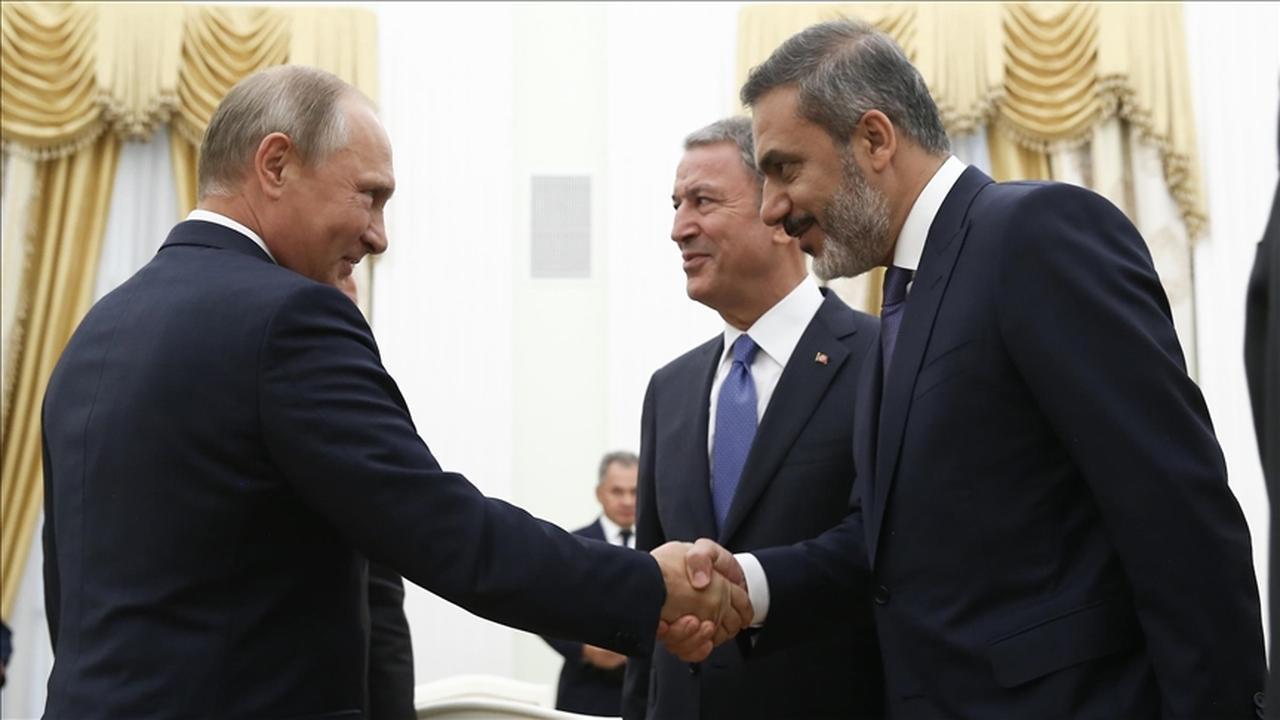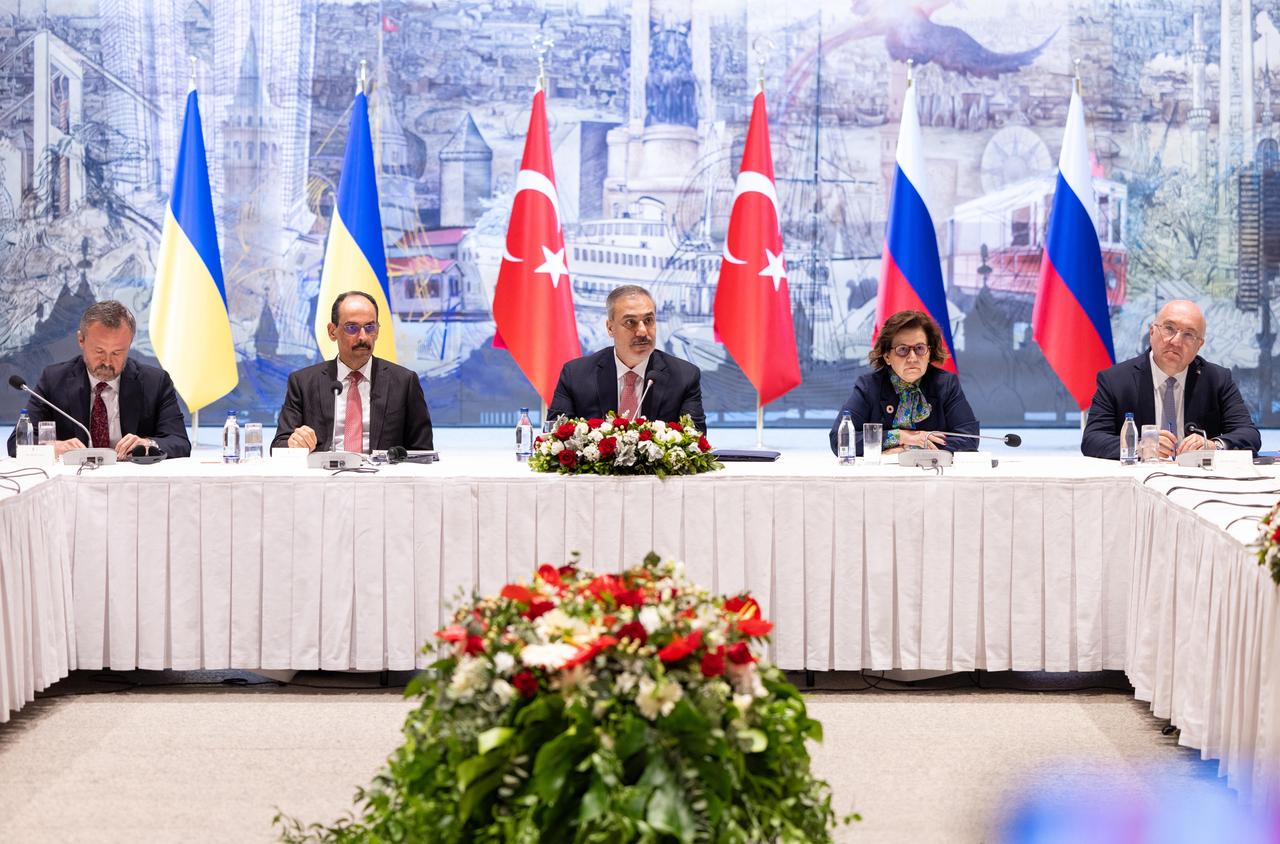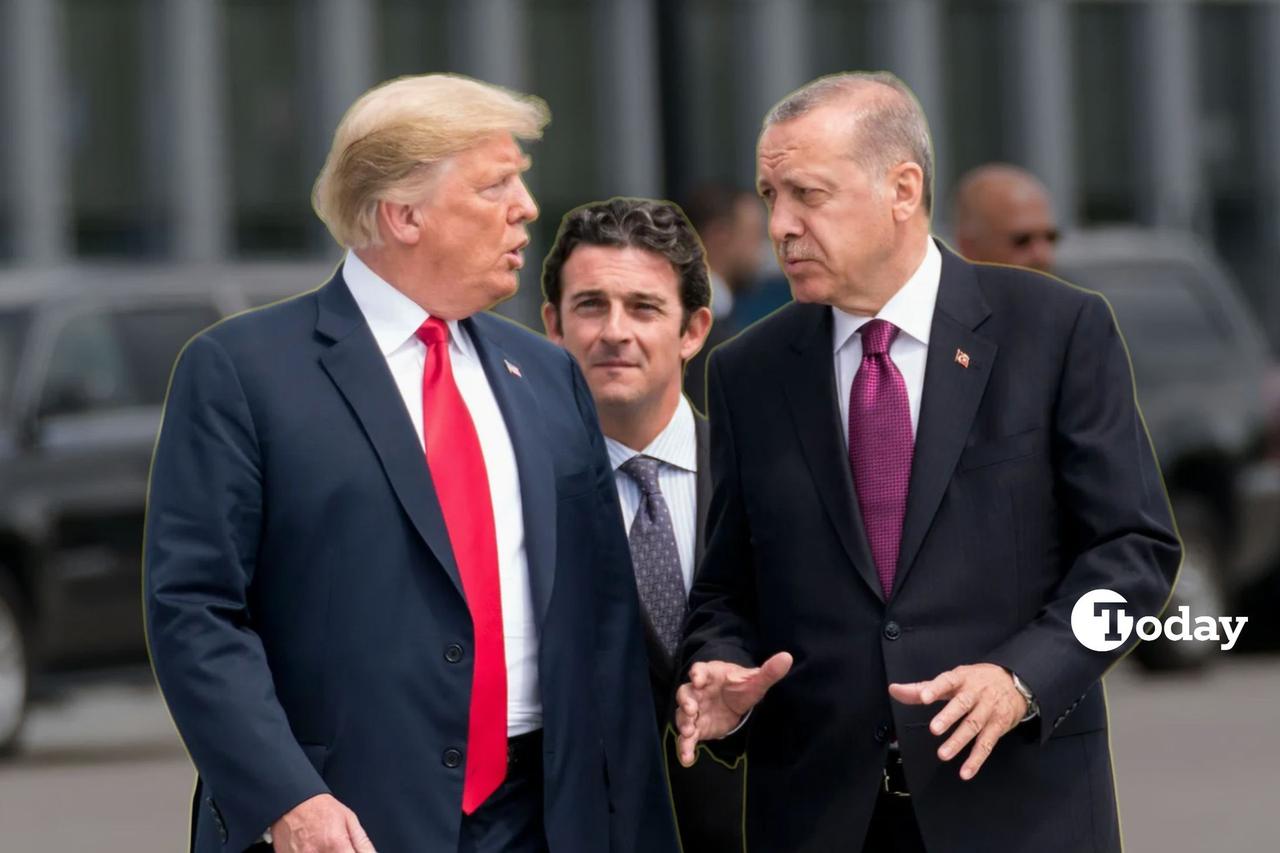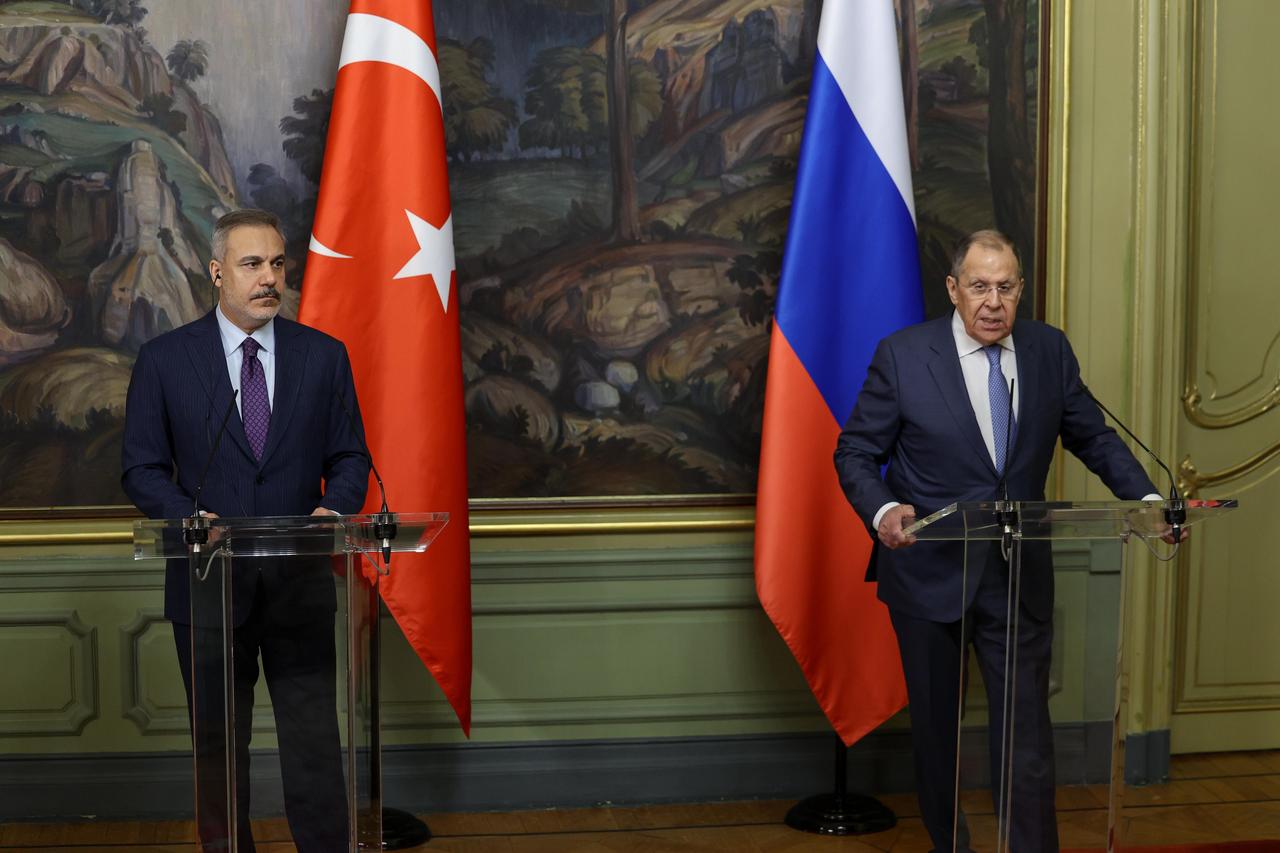
In a high-level visit to Moscow on May 26–27, Turkish Foreign Minister Hakan Fidan held a series of critical meetings with Russian officials, including President Vladimir Putin, Foreign Minister Sergey Lavrov, and Putin’s chief negotiator Vladimir Medinsky.
During a joint press conference with Lavrov following their meetings, both diplomats acknowledged Türkiye’s active and ongoing role in regional diplomacy. Fidan emphasized that Ankara views this mediation not merely as a diplomatic choice, but as a responsibility for regional and global peace.
Gurkan Demir, a foreign policy analyst at the Türkiye Research Foundation, commented: “This is a critical visit, especially in light of Trump’s remark to Ukrainian President Zelensky in the Oval Office that ‘you have no cards left.’ Ukraine’s only remaining card is to ensure that negotiations are held in Istanbul. Any other venue—whether in Europe or elsewhere—puts Ukraine at a disadvantage due to the influence of Russia and the U.S.”

After President Trump floated the idea of holding talks at the Vatican, Fidan’s engagement with Russian officials has revived momentum for Istanbul as the venue for the next round of peace talks between Russia and Ukraine—talks that many hope could lead to a more conclusive outcome.
Lavrov expressed skepticism toward the Vatican proposal, arguing that it would be inappropriate for two Orthodox-majority nations to negotiate in the symbolic heart of Catholicism.
The foreign minister openly welcomed the idea, pointing to the constructive environment created during the previous negotiations held in Türkiye. Referring to the direct discussions in Istanbul on May 16, Lavrov said, “If asked, I would certainly turn to our Turkish friends again. Istanbul was excellent.”
Türkiye had previously facilitated meetings between Russian and Ukrainian delegations shortly after the war began in February 2022, first in Antalya and then in Istanbul. While those talks failed to produce lasting results, Turkish officials are keen to maintain Istanbul as the preferred platform for future peace negotiations.
Fidan relayed that Turkish authorities had proposed this idea during talks with both Putin and Lavrov, stressing the importance of sustaining diplomatic momentum to avoid further deterioration of the conflict.
"The main goal of Turkish Foreign Minister Hakan Fidan’s visit to Moscow can be seen as securing Russia’s demands ahead of the next round of talks, in order to make negotiations with Ukraine more realistic and manageable," said Prof. Dr. Salih Yilmaz of Ankara Yıldırım Beyazıt University. "Otherwise, without both sides presenting their demands or reaching preliminary understandings, there’s a strong chance that a second round of talks will also fail to produce results. Mr. Fidan wants to pave the way for peace by ensuring that the parties come to the table with clear expectations."

Türkiye’s diplomatic initiative is being closely coordinated with the United States. Ankara seeks to ensure that any future negotiation track, including potential peace summits, progresses in tandem with U.S. support—particularly as the international community prepares for the upcoming NATO summit in the Netherlands.
Ankara is reportedly aiming to see meaningful progress in the Russia-Ukraine peace track by the time of the NATO gathering. President Erdoğan's possible visit to Washington for a first face-to-face meeting with President Donald Trump is also seen as part of this broader coordination strategy.
Fidan’s visit to Moscow came just days after the May 16 talks in Istanbul and was part of a broader diplomatic initiative aimed at restarting the negotiation process. Sources confirmed that Fidan would soon travel to Ukraine at the invitation of senior Ukrainian officials, including Foreign Minister Andriy Sibiha, President Volodymyr Zelensky, Prime Minister Denys Shmyhal, and Presidential Office head Andriy Yermak.
The primary agenda in these meetings is expected to center around establishing a ceasefire and developing a long-term peace agreement. Fidan is also expected to reaffirm Türkiye’s readiness to host future negotiations and stress the need for diplomacy to mitigate the deepening humanitarian crisis caused by the ongoing war.
Fidan's visit went beyond peace negotiations, encompassing discussions on energy and economic cooperation. Talks with Russian business leaders and officials also touched on the progress of the Akkuyu Nuclear Power Plant, with both sides pledging to resolve existing implementation issues.
As part of his Ukraine visit, Fidan is expected to highlight Türkiye's commitment to supporting Ukraine’s post-war reconstruction and the protection of its sovereignty and territorial integrity. Discussions will likely cover maritime navigation security in the Black Sea, reflecting broader regional stability concerns.
Beyond formal diplomacy, Fidan is expected to meet with representatives of the Crimean Tatar and Gagauz Turk communities during his Ukraine visit. This reflects Türkiye’s broader policy of engaging with ethnic Turkic communities and ensuring their concerns are represented in regional political processes.

Lavrov’s statements took a more critical tone when addressing the broader international response. He accused several European powers—including Germany, France, the United Kingdom, and Poland—of undermining the peace process, arguing that the European Union lacks the strength and unity to effectively support negotiations. Lavrov claimed that some political actors in the West fear the end of the war might mark the end of their own political careers.
Despite the encouraging signals from both Ankara and Moscow after the meetings, serious challenges remain. Lavrov noted that Ukraine’s military actions continue to undermine peace efforts, and he questioned Kyiv’s willingness to negotiate in good faith.
Still, Türkiye’s efforts to revive talks, create a neutral platform, and coordinate with global actors suggest a strategic push to insert Ankara more deeply into the center of global mediation.
The Moscow visit will be followed by a visit to Ukraine, where shuttle diplomacy will be conducted on behalf of Türkiye.